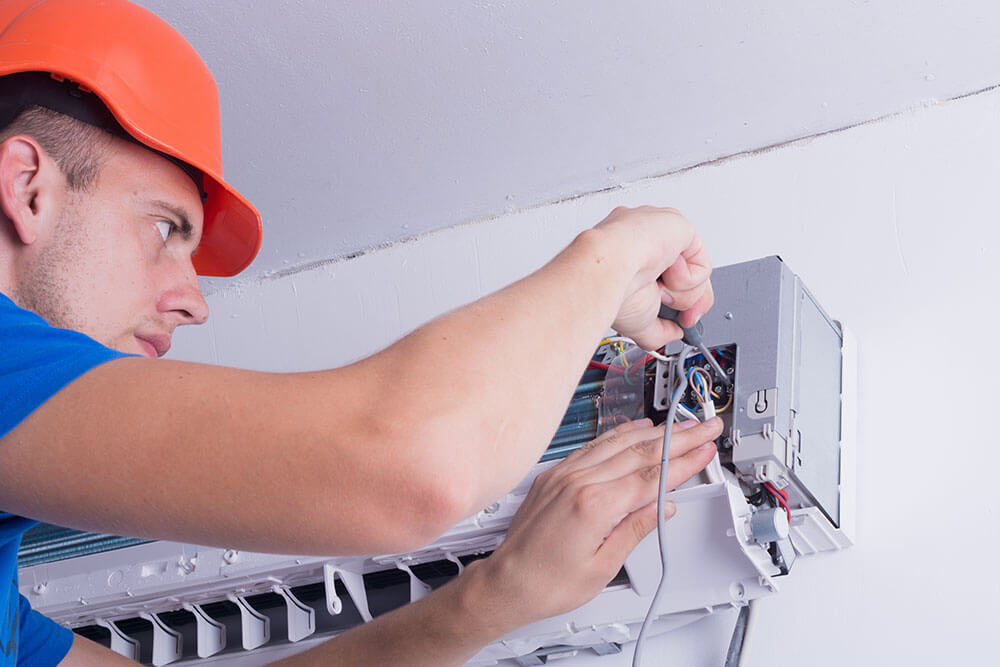The Study of Thermodynamics in Heating, Ventilation, and Air Conditioning

HVAC, commonly known as heating, ventilation, and air conditioning, plays a essential role in maintaining comfortable indoor environments in both domestic and business spaces. As you move through any house, you might not think twice about the systems working quietly behind the background to ensure that the air is at a desirable temperature and purity. However, comprehending the principles of physical chemistry that govern these systems can greatly enhance our capacity to manage them efficiently.
In this resource, we will examine into the theory of HVAC, uncovering how these systems operate and why they are necessary. From fundamental concepts for newcomers to tips on efficient maintenance and energy usage, we will explore various aspects of HVAC systems. Whether you're thinking about an upgrade, looking to improve indoor air quality, or simply wanting to reduce your energy bills, this article will provide the necessary knowledge you need to make informed decisions about your heating and cooling systems.
Grasping HVAC Technologies

HVAC, Cooling, and Heating , commonly known as HVAC, is an integral aspect used for ensuring comfort in interior environments. At its heart, an HVAC system operates by managing the temperature, humidity, and air quality of locations in residences and industrial structures. It accomplishes this through a set of linked parts that perform the necessary tasks of warmth generation, temperature reduction, and air circulation. Whether it’s a home setting or a big office facility, understanding how these mechanisms function is crucial for optimal climate control.
The primary parts of an HVAC configuration consist of the heat source, cooling mechanism, fresh air system, and the thermostat. Heating can come from multiple methods, including heat sources, heat pumps, or thermal vessels, which produce heat during frigid periods. For temperature control, AC systems or devices like thermal pumps are used to eliminate warm air from enclosed air, providing a cool space in the summer. Air exchange plays a critical role in ensuring fresh air moves through the environment, assisting to maintain air quality and remove floating pollutants.
Furthermore, adequate care is key to ensuring HVAC systems work smoothly and last over time. Routine inspections can pinpoint frequent issues such as blocked screen filters or refrigerant escapes before they develop into more major issues. Understanding how these mechanisms operate not only assists house owners and corporate leaders make informed choices about use and maintenance but also equips them to create inviting residential and professional atmospheres year-round. spintax #### Frequent HVAC Issues and Solutions
Property owners often experience a range of HVAC issues that can disrupt convenience and efficiency. One common problem is inadequate heating or cooling. This can occur due to a malfunctioning thermostat, clogged ducts, or low refrigerant levels. To tackle this issue, start by checking the thermostat settings and changing batteries if needed. Next, examine and clean air filters and ensure that vents are clear. If problems persist, it may be necessary to call a professional technician to check for refrigerant leaks or system malfunctions.
Another frequent concern is unwanted noise coming from the HVAC system. Noises like clattering, grinding, or buzzing can indicate various problems, from loose components to failing motors. Homeowners should first examine the outside unit for any debris that might be causing noises and ensure all screws and fasteners are secure. If the noise is intense or ongoing, it is advisable to seek professional help to identify and resolve the underlying issue, as ignoring it can lead to more significant damage.
Finally, poor indoor air quality is an issue that many do not realize as directly related to HVAC systems. Problems such as dust accumulation and allergens can stem from contaminated air filters or poor ventilation. To improve air quality, routine maintenance is crucial, including frequent filter changes and duct cleaning. Adding air purifiers and choosing the right filters for your system can greatly enhance indoor air quality and overall well-being in the home.
Energy Efficiency and Advancements in HVAC
The HVAC sector has witnessed major advancements in energy efficiency, primarily due to the growing requirement for green options. Modern units are engineered to maximize energy consumption while ensuring comfort levels in residential spaces and business buildings. air conditioning service as variable speed motors, sectioned heating and cooling, and sophisticated heat exchangers enable HVAC units to operate more optimally, reducing power use and lowering energy costs.
Intelligent automation implementation is another important innovation driving energy conservation in HVAC systems. Smart thermostats and home automation technologies provide residents with unparalleled control over their heating and cooling preferences. These gadgets can adapt to occupant behaviors, modify settings on their own based on occupancy, and provide instant energy usage data, all contributing to a more efficient HVAC operation. As smart devices continue to improve, they will play an ever more critical role in energy management.
Additionally, alternative energy solutions, such as solar-powered HVAC systems, are transforming the field. These systems capture solar energy to reduce reliance on conventional power options, offering both environmental benefits and cost savings. Geothermal heating and cooling is another novel solution, utilizing the earth's stable heat to provide sustainable climate control. As these technologies become more accessible, residents and businesses can make knowledgeable decisions that align with their dedication to sustainability and resource conservation.
